Health
Texas postal worker dies while delivering mail in ‘dangerous environment’ with record-high temps
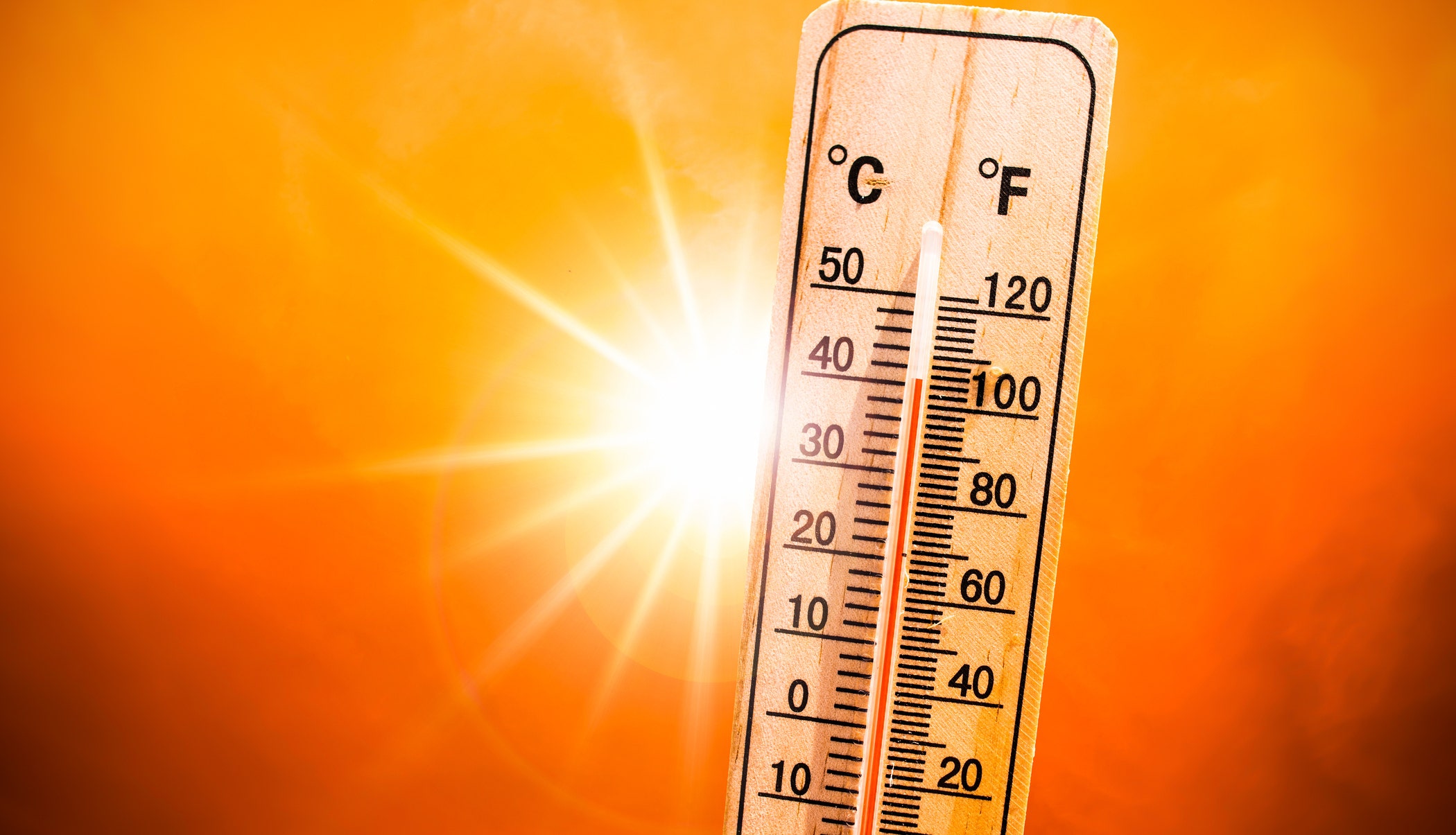
North Texas postal worker Eugene Gates Jr., 66, died on June 20 after he collapsed while delivering mail amid a dangerously high heat index, according to multiple reports.
The heat index that day had reached 115 degrees Fahrenheit, the highest recorded temperature in the Dallas-Fort Worth area since 1980, according to a local news outlet.
A homeowner rushed outside to perform CPR after Gates lost consciousness, but he was later pronounced dead at Texas Health Presbyterian Hospital.
The cause of death has yet to be determined by the medical examiner.
SWELTERING TEXAS HEAT WAVE SCORCHES SOUTHERN CITIES, BRINGING TRIPLE-DIGIT TEMPERATURES
Gates served in the United States Army. He later traded his uniform for another life of service for the United States Postal Service (USPS), as noted in a statement.
He was a member of Lone Star Branch 132 in the National Association of Letter Carriers. During his 36 years of delivering mail, Gates was “beloved by his colleagues and customers,” the statement added.
North Texas postal worker Eugene Gates Jr., 66, died on June 20 after he collapsed in a yard while delivering mail amid a dangerously high heat index. (iStock)
“America’s letter carriers often work in dangerous environments,” National Association of Letter Carriers President Brian L. Renfroe, based in Washington, D.C., said in a recent statement.
“The most important and immediate step that can be taken to protect anyone from the hazard of excessive heat is to learn as much as possible about this potentially life-threatening hazard — particularly the warning signs of heat illness,” he continued.
HEAT WAVE RESPONSIBLE FOR MULTIPLE DEATHS ACROSS US
Some organizations, such as the World Health Organization (WHO), claim that climate change is causing steadily rising temperatures and increasing exposure to heat.
“Heat stroke can occur whenever one is exposed to excessive heat without protection, cooling measures or fluid and electrolyte repletion,” Carl Allamby, M.D., an emergency medicine physician at Cleveland Clinic in Cleveland, Ohio, told Fox News Digital.
To prevent heat exhaustion and heat stroke, it’s vital to understand the warning signs.
What’s the heat index?
The heat index measures how hot your body feels when considering both the humidity and the outside temperature, according to the National Weather Service.

“America’s letter carriers often work in dangerous environments,” National Association of Letter Carriers President Brian L. Renfroe, who is based in Washington, D.C., said in a recent statement. (iStock)
When it gets too hot outside, the body starts to sweat, which has a cooling effect when perspiration starts to evaporate.
As the relative humidity increases, however, it takes longer for the sweat to evaporate, causing people to feel warmer.
Understanding heat exhaustion
Heat exhaustion occurs when the body loses too much salt and water, often through excessive sweating, according to the Centers for Disease Control and Prevention (CDC).
The loss of water through sweating and evaporation can cause dehydration and the loss of electrolytes, Allamby said.
BE WELL: STAY HYDRATED IN THE SUMMER HEAT WITH THESE SMART TIPS
“Symptoms manifest as an elevated heart rate (tachycardia), sweating, nausea/vomiting, headache, weakness and dizziness,” he noted.
Some other warning signs include feeling thirsty, sweating profusely or having a decreased urine output, the CDC said.
Symptoms of heat exhaustion include elevated heart rate, sweating, nausea, vomiting, headache, weakness and dizziness.
“These symptoms are usually reversible by removing the person from the heated environment, providing liquids containing electrolytes and using evaporative cooling methods, such as spraying them with water and putting them in front of a fan,” the doctor added.
When heat exhaustion symptoms are ignored, they can progress to heat stroke, Allamby warned.
If symptoms worsen, persist for more than one hour or lead to vomiting, it’s important to seek immediate medical attention, the CDC warns.
Signs of heat stroke
Heat stroke is the most serious heat-related illness. It occurs when the body’s sweating mechanism breaks down and the person can’t cool down, according to the CDC.
“This is where the person’s temperature elevates above 40 degrees Celsius or 104 degrees Fahrenheit, [leading to] neurological changes such as confusion, difficulty walking, seizures, slurred speech, delirium and coma,” Allamby said. “They may also stop sweating at this point.”
Heat stroke can be fatal, especially if left untreated.
This condition occurs more often in children and the elderly, who may not have a structured environment to protect themselves from the heat, the doctor added.
Heat stroke “is usually fatal if not treated — but even with treatment, a significant amount of people will die as a result,” Allamby warned.

Heat stroke is the most serious heat-related illness, which occurs when the body’s sweating mechanism breaks down and the person can’t cool down, according to the CDC. (iStock)
A temperature above 100 degrees Fahrenheit may indicate heat exhaustion, while a temperature above 104 degrees Fahrenheit could be a sign of heat stroke, Healthline’s website explained.
When to seek medical attention
Heat stroke is a medical emergency, per the CDC, so it’s always important to call 911 when someone shows signs of the condition.
Use cooling measures while awaiting help. This includes getting the person into shade or a cool environment, said Allamby.
CLICK HERE TO SIGN UP FOR OUR HEALTH NEWSLETTER
“Time is of the essence, and the earlier treatment starts, the better the chance of survival and recovery,” he added.
The most effective treatment for heat stroke is immersion in a cold-water bath, Allamby said.
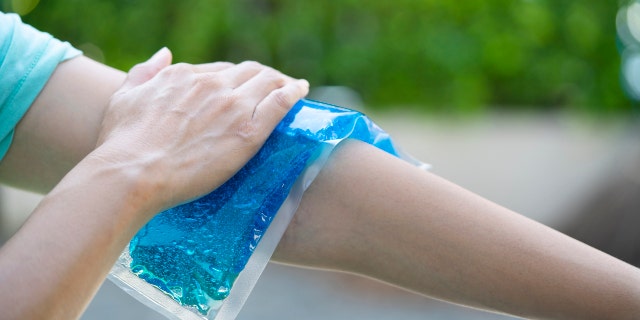
An alternative treatment for heat stroke is to apply ice packs under the arms, in the groin area and around the neck. (iStock)
An alternative treatment is to apply ice packs under the arms, in the groin area and around the neck.
“In the hospital, we can give cold [intravenous] fluids and provide other invasive techniques if needed, so getting them to an emergency department right away is of utmost importance,” Allamby explained.
“I hope this story helps to remind us to watch out for those who are most vulnerable to heated environments such as this mail carrier, children — especially during the sports training season — and the elderly,” he said.
“Please check on your neighbors and the ones you love — and maybe you can save a life.”

Health
Paleo and Atkins Diets: Low-Carb for Different Reasons | Woman's World

Sign Up
Create a free account to access exclusive content, play games, solve puzzles, test your pop-culture knowledge and receive special offers.
Already have an account? Login
Forgot your password?
Get back to the Sign In
Use left and right arrow keys to navigate between menu items.
Use escape to exit the menu.
Health
7 important health stories this week you simply can't miss
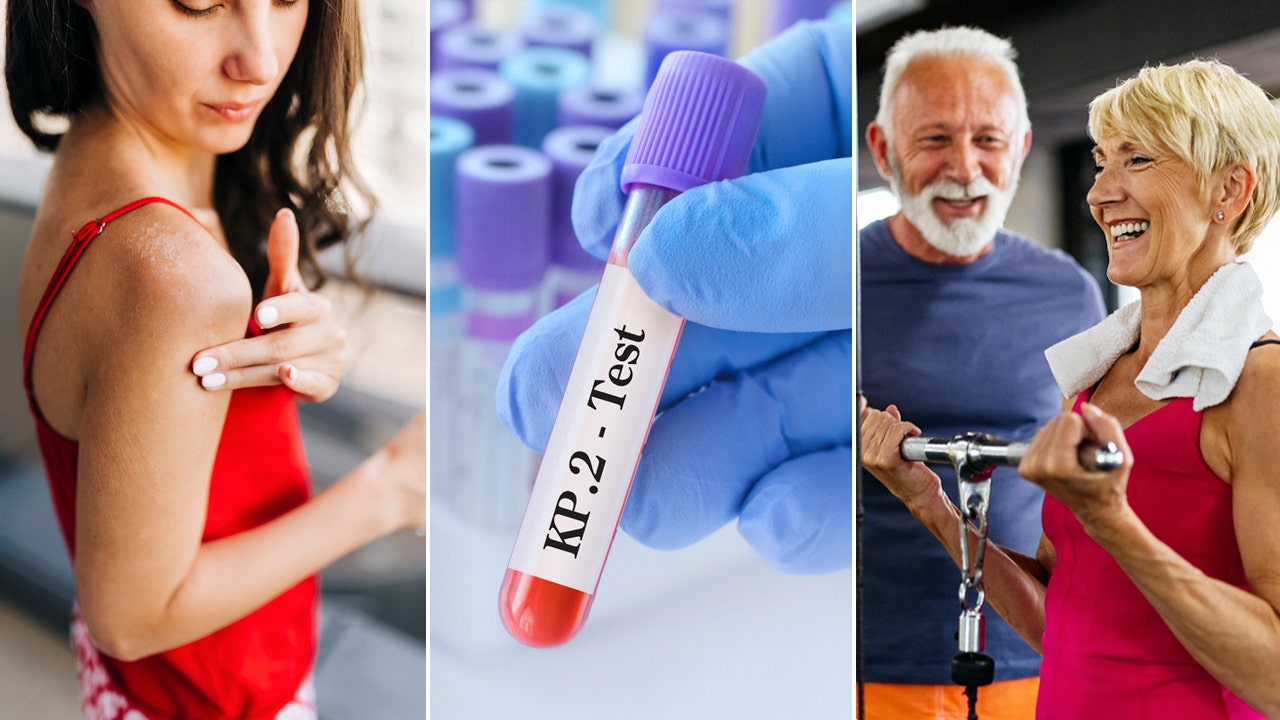
Every day of the week, Fox News Digital publishes a range of health and wellness pieces to keep you up-to-date on medical research, new medications, mental health trends, success stories and more.
In case you missed them, here are a few of the biggest health stories from the past week.
As always, you can see a full list of recent health pieces at http://www.foxnews/health.
CLICK HERE TO SIGN UP FOR OUR HEALTH NEWSLETTER
1. FDA tells COVID vaccine makers to update their fall shots
The U.S. Food and Drug Administration recommended that COVID vaccine manufacturers update their formulas for fall doses, in an attempt to target the KP.2 strain of the JN.1 variant.
Dr. Marc Siegel shared insights on the risks as this variant grows more prominent. Click here to get the story.
“It makes sense to target the KP.2 strain because it is becoming the predominant strain — it is surging in California and will spread across the country,” Siegel told Fox News Digital. (iStock)
2. Expert offers 7 tips to soothe sunburned skin
If not treated properly, sunburn can lead to severe skin damage and increase the risk of skin cancer, experts warn.
Angela Rosoff, a San Francisco-based wellness and beauty expert, shared some proven remedies to treat sun-damaged skin. Click here to get the story.
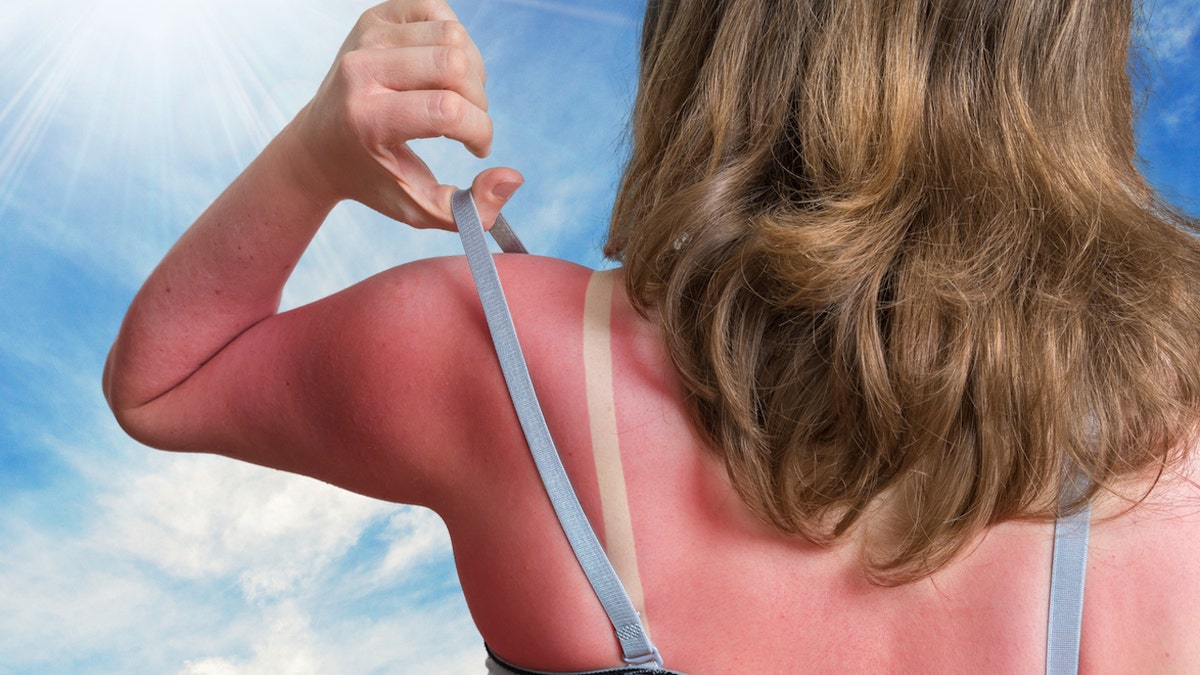
More than one out of every three adults experienced a sunburn last year, according to a survey by the American Academy of Dermatology. (iStock)
3. Tiger mosquitoes blamed for spread of dengue fever
As dengue fever continues to spread throughout Europe, experts are naming an invasive mosquito species as the culprit.
CANCER NEARLY TOOK HIS LEG, BUT NEW JERSEY FATHER OF 6 WALKS AGAIN: ‘I SHOULDN’T BE HERE’
Infectious diseases experts weighed in on the level of risk and share prevention tips. Click here to get the story.
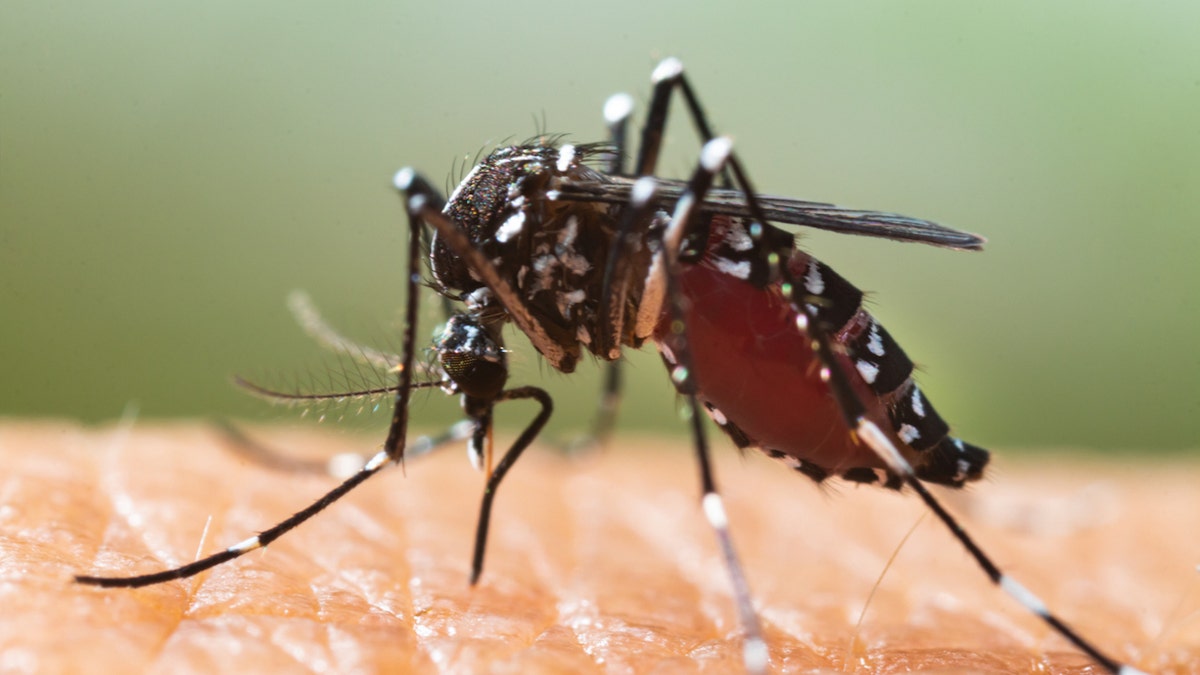
Tiger mosquitoes — the species Aedes albopictus — have spread into 13 EU countries, according to an alert from the European Centre for Disease Prevention and Control. (iStock)
4. Certain exercises could reverse Alzheimer’s, expert says
In her new book, “Reversing Alzheimer’s,” Dr. Heather Sandison, a renowned expert in dementia care, offered specific recommendations for the types of exercise that can benefit patients living with the disease.
“Exercise benefits several of the root causes of neurological disease,” she wrote. Click here to get the story.
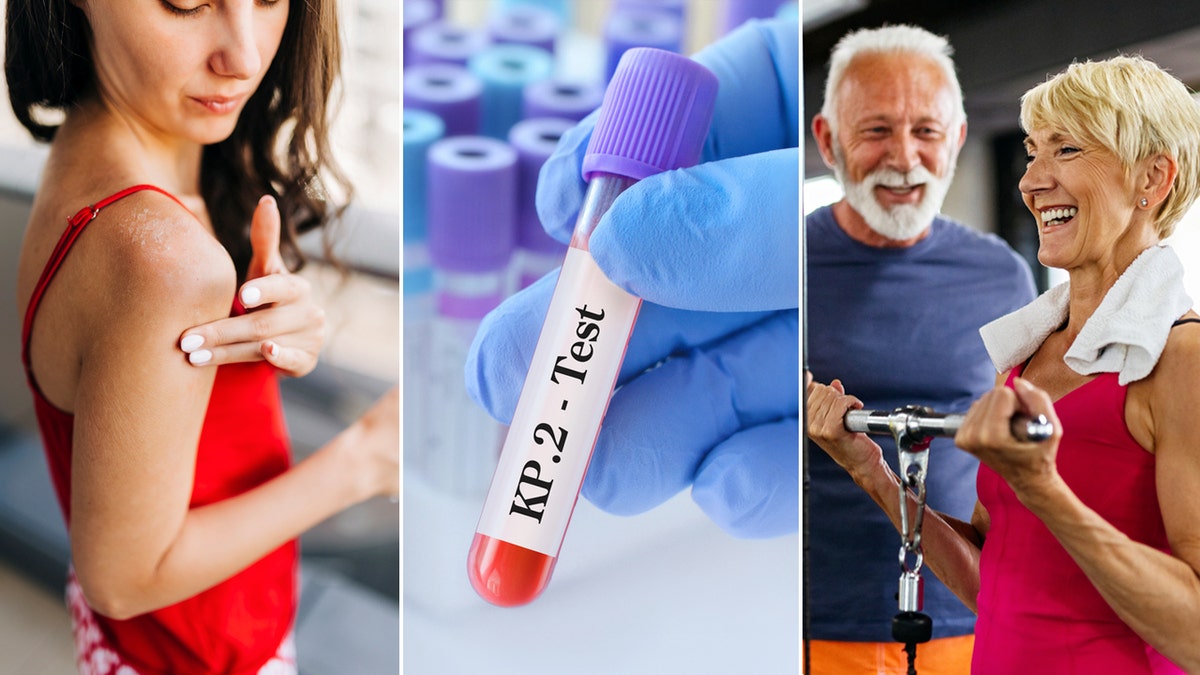
Sunburn remedies, new COVID vaccines, anti-Alzheimer’s exercises and more important stories are covered here. (iStock)
5. Experts bust sunscreen myths
Some claims on social media about sun safety have led to a major misconception that sunscreen could cause skin cancer.
Dermatologists debunk these potentially dangerous myths. Click here to get the story.

Thirty-two percent of Americans believe that a tan makes people look better and healthier, according to the Orlando Health Cancer Institute study. (iStock)
6. New Alzheimer’s drug gets thumbs-up from FDA advisory committee
Donanemab, designed to treat mild cognitive impairment and other symptoms of early Alzheimer’s disease, was endorsed by a U.S. Food and Drug Administration advisory panel.
Here’s what that could mean for patients. Click here to get the story.
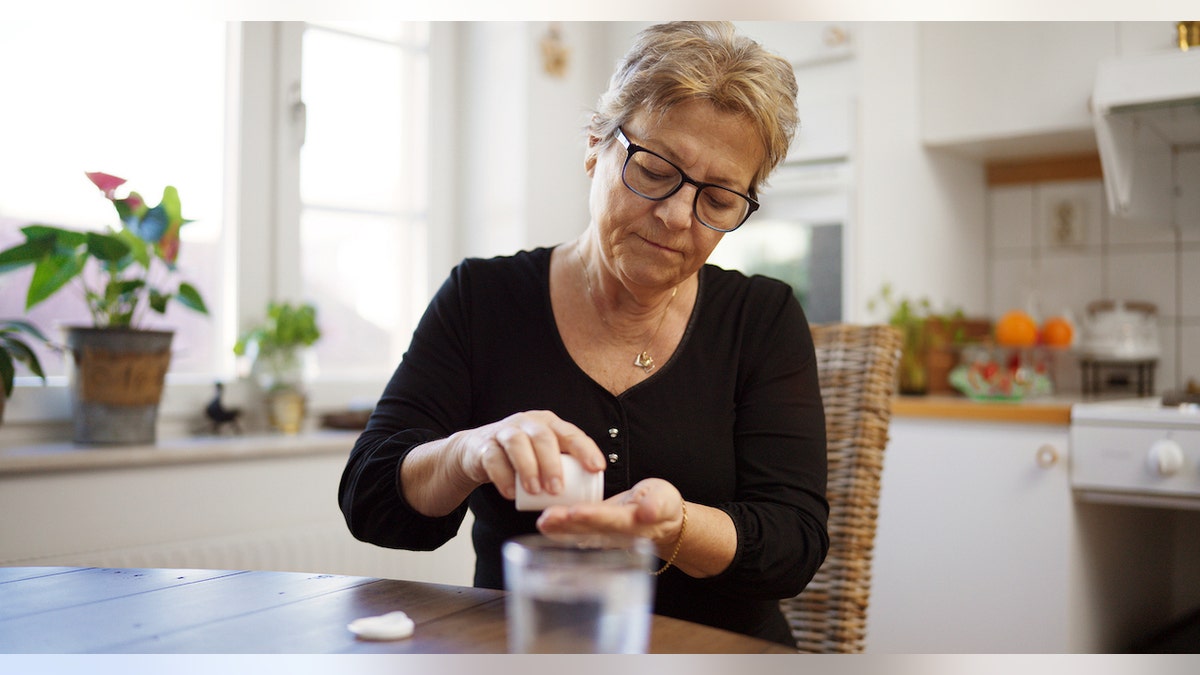
Eli Lilly officials presented clinical trial results showing that the drug, donanemab, slowed cognitive and functional decline for people with mild cognitive impairment due to early stages of Alzheimer’s. (iStock)
7. FDA panel rejects MDMA-assisted therapies for PTSD
Many veterans’ hopes were dashed when an FDA advisory committee voted against the overall benefits of MDMA when used to treat PTSD.
Advocates and doctors discussed what this means for the future of psychedelic treatments. Click here to get the story.

“When I heard the verdict, all I could think about was the hopes of those veterans being dashed … and not having a solution for them,” one advocate said. (iStock)
Health
Better Than Ozempic? Doctors Say These Medications Are Better for Weight Loss Than the Popular Semaglutide

Sign Up
Create a free account to access exclusive content, play games, solve puzzles, test your pop-culture knowledge and receive special offers.
Already have an account? Login
Forgot your password?
Get back to the Sign In
Use left and right arrow keys to navigate between menu items.
Use escape to exit the menu.
-

 News1 week ago
News1 week agoIsrael used a U.S.-made bomb in a deadly U.N. school strike in Gaza
-

 World1 week ago
World1 week agoFrance to provide Ukraine with its Mirage combat aircraft
-

 News1 week ago
News1 week agoNonprofit CFO Accused of 'Simply Astonishing' Fraud
-

 World1 week ago
World1 week agoRussia-Ukraine war: List of key events, day 833
-

 Politics1 week ago
Politics1 week agoGeorge Clooney called White House to complain about Biden’s criticism of ICC and defend wife’s work: report
-

 Politics1 week ago
Politics1 week agoNewson, Dem leaders try to negotiate Prop 47 reform off California ballots, as GOP wants to let voters decide
-

 World1 week ago
World1 week ago‘Bloody policies’: Bodies of 11 refugees and migrants recovered off Libya
-

 Politics1 week ago
Politics1 week agoEmbattled Biden border order loaded with loopholes 'to drive a truck through': critics















